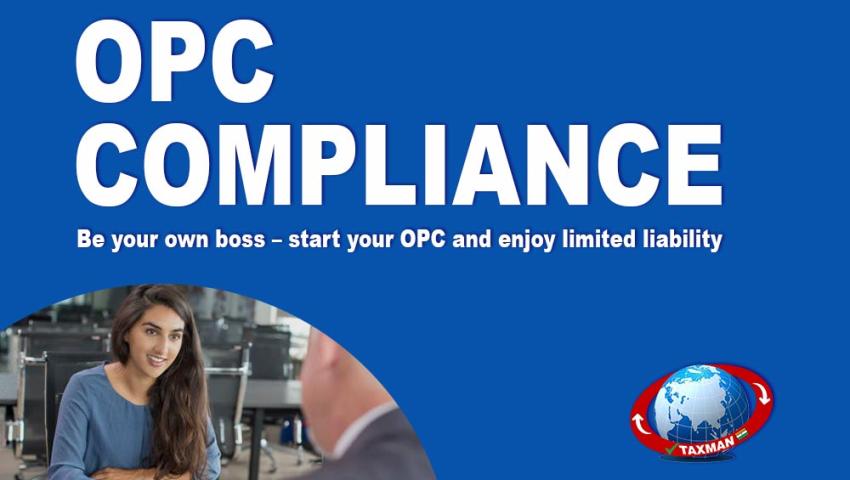
OPC Compliance: Ensuring Legal Adherence for One Person Companies
OPC compliance ensures legal adherence, smooth operations and penalty avoidance by meeting filing, reporting tax requirements for One Person Companies.
What is OPC Compliance?
OPC Compliance refers to the set of legal and regulatory obligations that a One Person Company (OPC) must adhere to under Indian law. OPCs are governed by the Companies Act, 2013, and the compliance requirements ensure that the business operates legally. OPCs enjoy the benefits of limited liability while being run by a single shareholder, but like other companies, they must comply with various statutory requirements to maintain their legal standing and avoid penalties.
Why is OPC Compliance Important?
- Avoiding Penalties
Non-compliance with OPC regulations can result in penalties, fines, or even legal action. Failure to file necessary documents, tax returns, or audit reports can lead to these penalties. - Legal Recognition
OPC compliance ensures the company remains in legal standing, allowing it to operate without any legal hindrances. Non-compliance can result in the company being dissolved or removed from the registry. - Trust and Credibility
When an OPC adheres to all legal and regulatory requirements, it earns the trust of investors, customers, and government bodies. Compliance enhances the company's reputation and credibility. - Smooth Business Operations
By following compliance regulations, an OPC ensures smooth and uninterrupted operations. This includes accurate tax filing, proper financial reporting, and adherence to corporate governance standards.
Common OPC Compliance Challenges
- Missed Filing Deadlines
Missing deadlines for filing annual returns, financial statements, or tax returns can lead to penalties. It is crucial to adhere to the filing schedule set by the MCA. - Inaccurate Financial Reporting
Inaccurate reporting or failure to maintain proper accounting records can lead to audits, penalties, and other legal issues. Maintaining proper books of accounts is essential for OPCs. - Changes in Business Structure
If the OPC crosses the threshold limits, failure to convert into a Private Limited Company can result in non-compliance. Businesses must be aware of these changes. - Failure to Appoint Directors
If the OPC fails to appoint a qualified director or doesn't maintain a resident director, it may violate the provisions under the Companies Act, leading to penalties.
How to Ensure OPC Compliance?
- Timely Filing
Ensure timely filing of the annual return, financial statements, tax returns, and other mandatory filings. Keeping track of filing deadlines using compliance management tools can help avoid penalties. - Proper Maintenance of Financial Records
Maintain clear and accurate financial records, ensuring that all expenses, income, and transactions are documented properly. This will simplify tax filing and audits. - Engage Professionals
Engage a chartered accountant for regular audits, tax filing, and compliance guidance. Consulting a professional ensures that you meet all legal requirements and follow best practices. - Monitor Legal Thresholds
Keep an eye on the annual turnover and paid-up capital thresholds for OPCs. If your OPC exceeds these limits, you will need to convert the company into a Private Limited Company. - Regular Review of Compliance Requirements
Regularly review the compliance requirements for OPCs, as laws and regulations can change. Staying updated will help you stay compliant and avoid legal issues.
Raushan Kumar
Leave a comment
Your email address will not be published. Required fields are marked *
